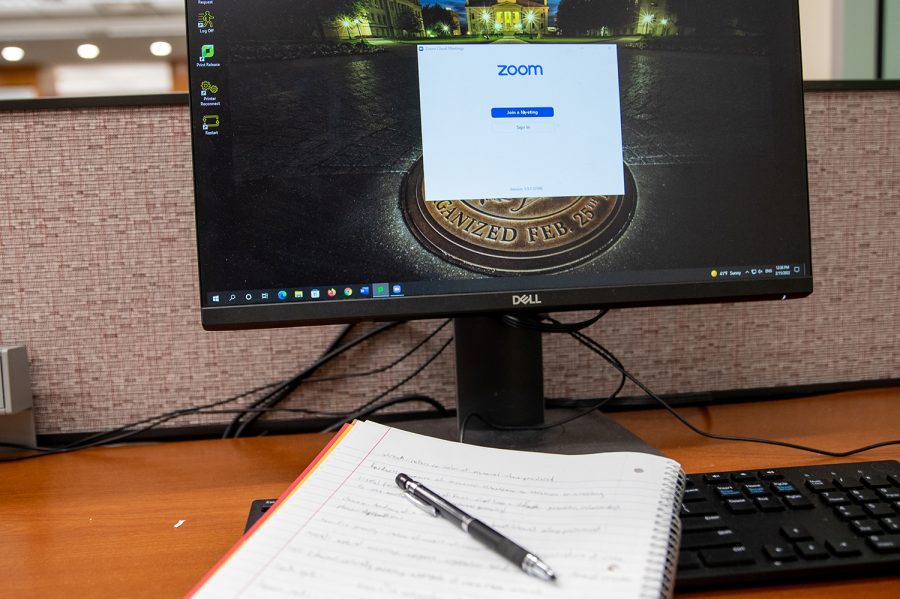Opinion | Online education stagnates students
In-person learning benefits students more than online learning.
Photo illustration.
April 2, 2023
We need to stop relying on online education after the COVID-19 pandemic.
The experiences students gain in a classroom can never be gained from an online classroom.
As we consider the increasing usage of distance-education, it’s important that we also examine the benefits and the consequences.
As a student who was halfway through community college, my education was significantly impacted by the accommodations made for the COVID-19 pandemic. The small in-person classrooms were replaced by online classes that felt disconnected. It was harder to pay attention to lectures, and I could feel the urge to click away onto less productive applications.
It was convenient, but so are microwaved processed foods. They both trade quality for ease.
According to a study by the American Economic Foundation, students who learned from an online class achieved lower scores compared to students in a face-to-face format. In another study published by the Journal of the European Economic Association, low-ability students achieved less than higher-ability students, who performed better.
At best, this education model privileges students who possess cognitive advantages.
Cheating is also a concern with internet-reliant education. Educators are in an arms race with ChatGPT, a program capable of producing convincing responses to many questions, including essay prompts. It was only a matter of time until students began taking advantage of this budding technology to cheat on their coursework.
In an online class, limited interaction with professors and the feeling of anonymity make cheating more tempting.
Dylan Proeller, a University of Iowa fourth-year majoring in English and creative writing, discussed his disinterest in online learning.
“For me, it’s very black-and-white between in-person and online,” Proeller said. “To put it bluntly, I think online learning is worse in pretty much every way. It’s just really difficult to pay attention, especially with asynchronous classes. The motivation isn’t there, you’re not getting the instant feedback of being in-person and being able to talk to your professor easily.”
Sampson Rohret, a UI first-year student majoring in human physiology, said online learning is distracting.
“I think it’s convenient, though, because you can access the class anywhere that you have an internet connection,” Rohret said. “It can be hard to interact with the teacher if you have questions because there’s so many students, and it’s hard to get your teacher or professor’s attention.”
The lack of personal interaction in an online class also hampers academic growth. Being able to talk to a professor during class time is valuable to students. According to a survey by the University of Winnipeg, students preferred classes taking place in-person over online learning.
In my own experience, the ease of this in online learning depends on the professor’s organization of an online course and Zoom meeting hours that sometimes won’t coincide with mine. It goes without saying that no other kind of interaction can fully replace those inside a classroom.
With the potential to abuse artificial intelligence in assignments, slumping trends in grade point averages, and removing the personal experiences that make up college life, the consequences of distance education can’t be swept away.
Columns reflect the opinions of the authors and are not necessarily those of the Editorial Board, The Daily Iowan, or other organizations in which the author may be involved.














